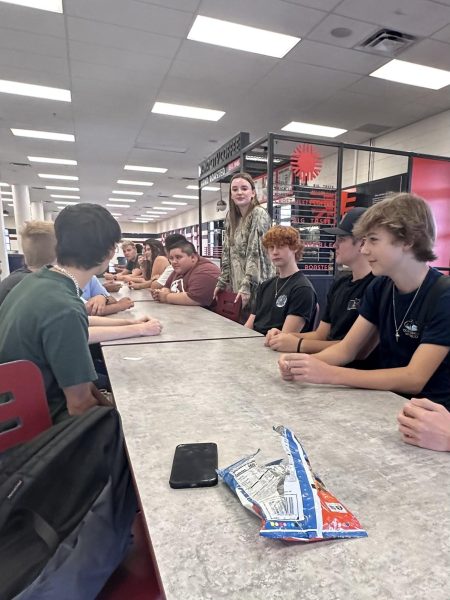Only parents should have say involving on-campus memorials for children
Perhaps the worst thing one could experience in high school is the untimely passing of a peer. From Brayden Mason to Michael Roach, the loss of a student rocks an entire school, reminding each person on campus how precious and fleeting life is.
Keeping the memory of these students alive is the priority of their friends and family, but when the discussion of an on-campus memorial arises, so does the gray area of who gets to make such a decision.
Sure, to those on campus who knew Brayden Mason, he is first and foremost a Puma, yet to his family, his loved ones, he is so much more. A family is never the only one who loses someone in tragedy, but they are surely the ones who lose the most.
Like the bench honoring Ben Nelson, the decision to sponsor a memorial on school grounds should only be permitted if desired by the family. This decision should not be solicited by anyone, and be the true wishes of the family.
Without this unspoken rule, how can the privacy and healing process of the family be protected? When a tragedy like the death of student occurs, the concern should lie with the privacy of the family, as well as the healing process of all who knew the child.
Think of how funeral arrangements are handled: the family has the ultimate say. The same guidelines should be assumed with the family’s decision on how their loved one should be honored, and whether or not that honoring includes an on-campus memorial. There would never be a question of who was in charge of a memorial service, and the same should stand in terms of a memorial at school.
Grieving can be a selfish thing, with individuals in mourning finding it difficult to imagine someone else possibly hurting more than you hurt. Because of this, it is important to allow a family to focus on themselves and how to cope with the loss of their loved one. By publicizing their child’s death on campus, the loss is no longer personal, but rather something for everyone to gawk at — including people who never knew the student. This is an immensely difficult decision to weigh, one that can only be made harder if the family is made to feel pressured to allow a memorial on campus.
There are many ways to honor a late friend other than going against a family’s wishes to memorialize their child in such a public way. Although it may seem like not commemorating the student’s memory on campus is equivalent to forgetting about him or her, the decision is ultimately the family’s to make, with respecting that decision a way of respecting the student.

I am a second-year opinions editor with experience in sports and features.




